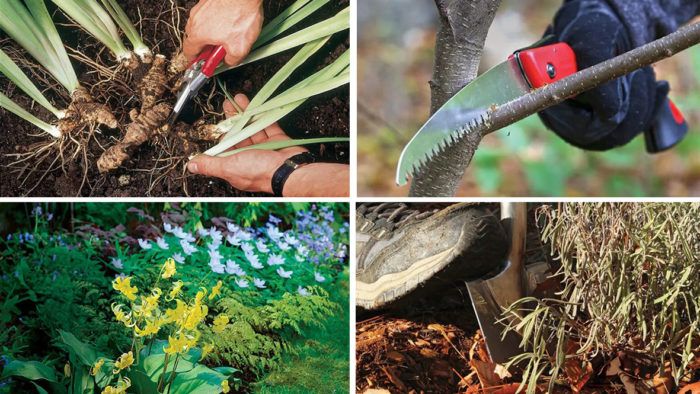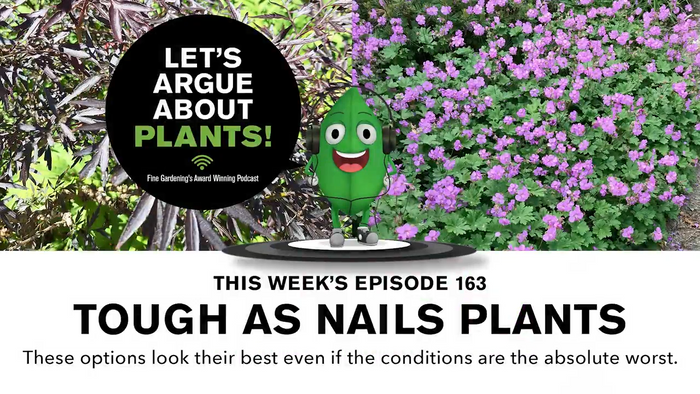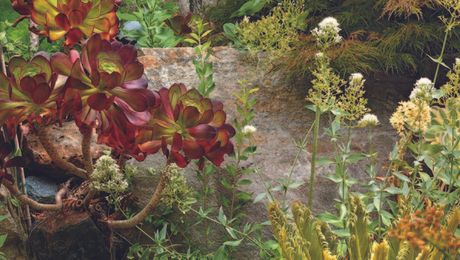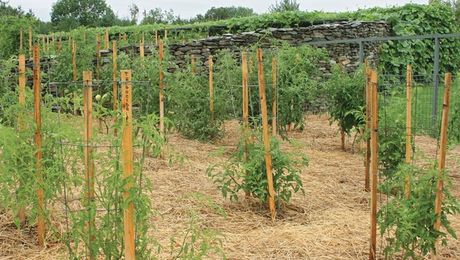
Did you ever wonder why pruning a plant causes it to grow more? Or how your soil’s pH can limit the number of microorganisms within it? For years Fine Gardening has tasked experts from around the country with answering these and other science-related gardening questions. We, like many of you, aren’t satisfied with just knowing what a plant’s response to pruning may be—we want to know why it behaves a certain way. What follows is a collection of some of our best science-based articles to help keep your brain engaged.
Find out how timing your pruning correctly is actually important to maintaining the energy and hormonal balance of a tree or shrub. Get the timing wrong, and the systems that regulate a plant can go haywire. Plant division and transplanting operate in a similar fashion, with timing and approach influencing the chemical reactions—both good or bad—within the plant.
Soil is the dark and mysterious lifeblood of the garden, and here you will learn why and how to support the diverse community of organisms that live in your soil. We even tackle how to use biological controls in the garden for pest and disease prevention, explaining how each method works and when it is appropriate to use. (No, you shouldn’t buy adult ladybugs and release them in the veggie garden to get rid of your aphid infestation.)
And who doesn’t want to learn about water-soluble fertilizers? For many years they’ve been touted by companies as the cure-all for every underperforming plant, but dig a little deeper and you might find the truth a little surprising.
Think of this page as your personal biology class taught by the country’s leading experts in soil science, plant physiology, and horticultural research.
-
 How-To
How-ToThe Science of Pruning
A basic knowledge of a few core principles can help you do a fairly good job of predicting plant response, and in turn, do a fairly good job of pruning -
 How-To
How-ToThe Science of Seed Starting
For success with seeds, it helps to understand a few key factors -
 How-To
How-ToThe Science Behind Plant Division
Understanding how and why a plant reacts to dividing may help you achieve greater success -
 How-To
How-ToMaster the Art of Transplanting
Understanding the science will help you move plants with less stress -
 Design
DesignGardening in a Changing Climate
With an increasingly erratic environment, find out what you can expect and what you can do on your little piece of the globe -
 Article
ArticleHow to Use Organic Controls to Battle Garden Pests
Before reaching for chemicals to fight garden pests and diseases, consider one of these organic measures -
 How-To
How-ToPut the Life Back Into Your Soil
Follow these seven steps for stronger plants and a healthier ecosystem -
 How-To
How-ToThe Four Things You Need to Know About Soil pH
Lee Reich explains what pH is, what it does, how to adjust it, and why to monitor it
-
 Design
DesignMix and Match for a Meaningful Design
If you have struggled to create a cohesive design, this easy formula is the answer











